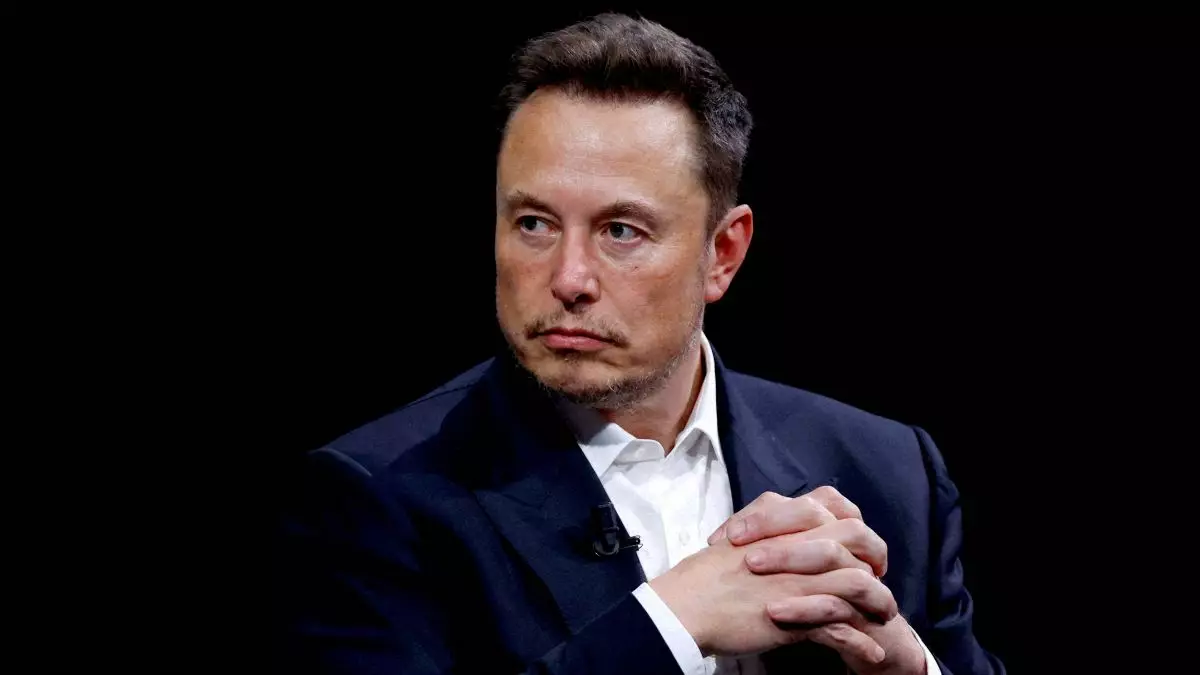The legal battle involving Elon Musk and the U.S. Securities and Exchange Commission (SEC) continues to capture public attention as it epitomizes the intersection of corporate maneuvering and regulatory oversight. The SEC’s recent decision to pursue sanctions against Musk underscores the persistent friction between a high-profile entrepreneur and a federal regulatory body tasked with enforcing securities laws. This article delves into the backdrop of this unfolding drama, examining the intricacies and implications of Musk’s legal entanglements with the SEC.
On a notable Friday, the SEC announced its intent to seek sanctions against Musk following his absence from a court-ordered testimonial session scheduled for September 10. This move comes amidst an ongoing investigation into Musk’s $44 billion acquisition of Twitter, a transaction that has raised eyebrows regarding Musk’s compliance with securities laws. In its court filing, the SEC accused Musk of civil contempt, indicating that he had only informed them of his non-appearance three hours before the hearing. Musk’s excuse for his absence—his presence at the launch of a SpaceX mission in Florida—was met with skepticism by the SEC, as they highlighted that he was intimately aware of the schedule due to prior discussions at SpaceX.
The SEC’s position marks a critical assertion of authority, housing implications that stretch beyond Musk’s current legal woes. The SEC’s lawyer framed Musk’s behavior as “gamesmanship,” suggesting that high-profile individuals should not evade legal responsibilities simply because of their stature or commitments in other domains. This raises an essential question: Should regulatory compliance be held to the same standard, regardless of the individual’s wealth and influence?
Elon Musk’s legal team took a firm stance against the SEC’s claims, labeling the proposed sanctions as drastic and unwarranted. His attorney, Alex Spiro, characterized Musk’s absence as a necessary response to an “emergency” that was beyond Musk’s control, emphasizing that Musk had prioritized the safety of astronauts involved in the SpaceX mission. The assertion that his participation in the launch could potentially jeopardize lives cuts to the heart of Musk’s multifaceted professional engagements and raises an ethical debate on corporate responsibility amidst regulatory scrutiny.
Musk’s defense posited that he had rescheduled his appearance for October 3, suggesting a commitment to complying with SEC requests. However, despite this rescheduling, the SEC’s statement that there is no guarantee Musk would appear adds a layer of tension to the already fraught relationship. It forces observers to consider whether past behaviors might prompt contingency planning from regulatory bodies in dealing with powerful figures like Musk.
The friction between Musk and the SEC has deeper roots, with a history of legal disputes that includes Musk’s infamous 2018 tweets about taking Tesla private, which led to a settlement involving a hefty fine and a mandated review process for future communications. This existing tumult highlights a more significant trend: the complex dynamics between the regulatory agency and the pioneers of innovation who often occupy the public spotlight.
Musk’s past interactions with the SEC raise pertinent questions regarding transparency and accountability in corporate governance. When public figures delay disclosures, as Musk did regarding his Twitter stake, it leads to skepticism among investors and can potentially manipulate market behavior. Critics argue that such maneuvers erode trust and undermine the foundational principles of equity markets, where transparency should be paramount.
The SEC’s pursuit of sanctions against Elon Musk serves as a sophisticated case study of the struggles inherent in balancing regulatory oversight with the ambitions of high-profile entrepreneurs. As Musk navigates this turbulent legal landscape, the implications of his actions reverberate beyond his personal interests, potentially shaping future interactions between regulators and corporate giants.
The unfolding events compel investors, regulators, and the public to consider the wider implications of power, responsibility, and accountability in the realm of high-stakes business dealings, serving as a reminder that the rules of engagement, while critical, often become tangled in personality, ambition, and the intricacies of the law. This saga is certainly one to watch, as it promises to shape the discourse around corporate governance and regulatory enforcement for years to come.


Leave a Reply